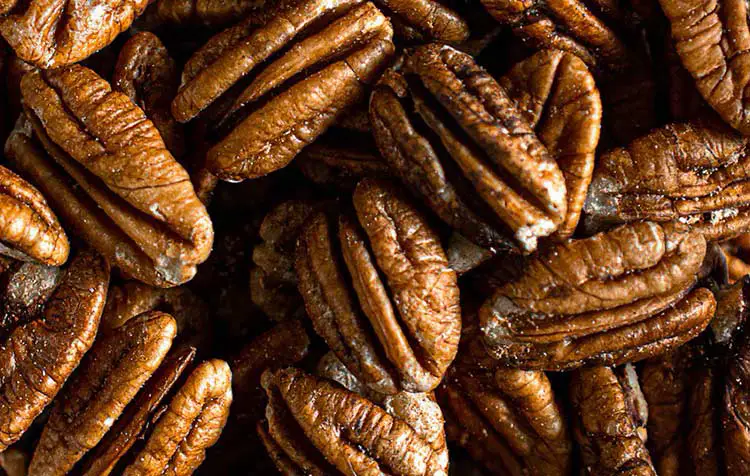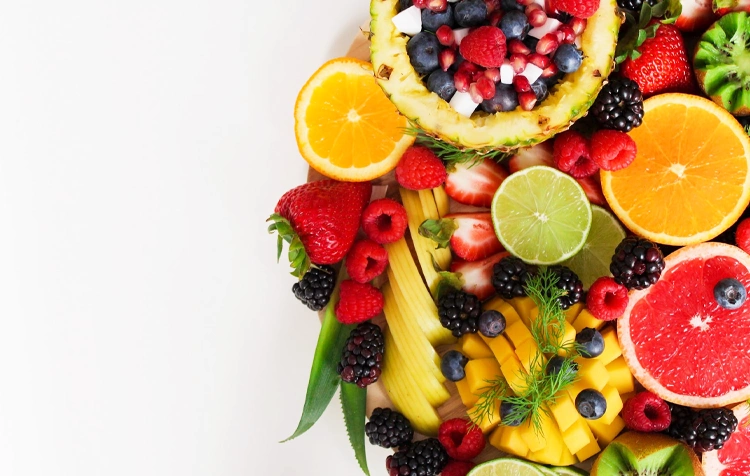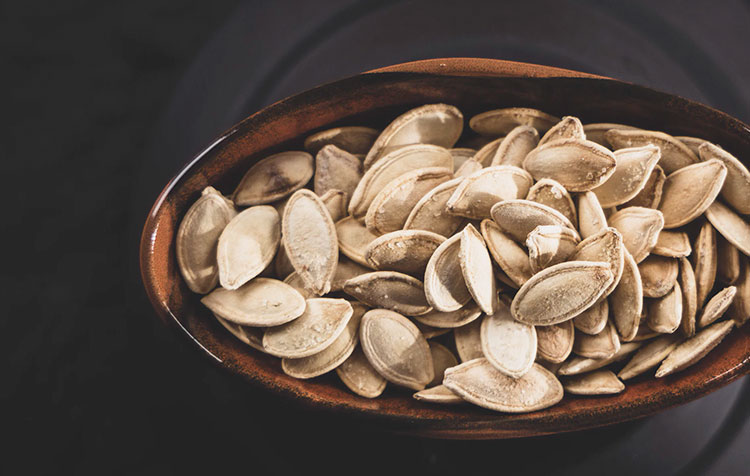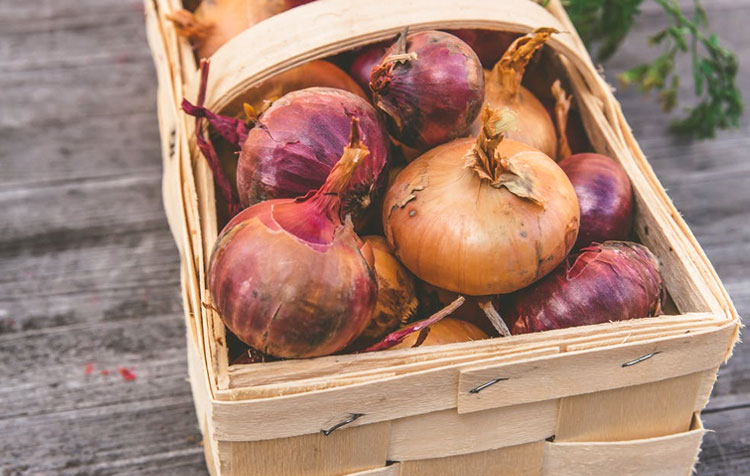We start with a short profile and the most important information. Then we continue with the intake, recommended daily requirement, physiological function, risk of overdose or deficiency, to the best B1 suppliers and supplements. Towards the end of the article, I also address the question of what vegans should consider regarding the supply of thiamine.
Here is in advance a short Table of contents for you:
Notice: This article is not a substitute for medical advice, but merely provides general information about thiamine. Please consult your doctor if you feel unwell or want to prevent health problems with medical care.
Vitamin B1 CONSTRUCTION LETTER AT A GLANCE
Assignment: Water soluble vitamins
Synonyms: Thiamine, thiamine chloride, aneurine, antineuritic vitamin
Important for: Carbohydrate, lipid and amino acid metabolism, energy production1
Daily requirement: 1.0-1.3 mg/day from the age of 19.2,3,4
Overdose: no maximum supply1,3,5
Deficiency symptoms: Neurological and cardiovascular disorders, fatigue, memory impairment, loss of appetite, among others.
Food: Sunflower seeds, whole grain products, legumes, nuts
Nutritional supplement: mostly as vitamin B complex
The thiamine uptake
Thiamine, respectively Vitamin B1, is a Water soluble vitamin. It should be ingested as regularly as possible, as it is only limited storable is. B1 is also sensitive to heat and oxidation.
The Bioavailability of thiamine is 100 percent when it is supplied in usual doses via the diet. The Absorption rate is dependent on B1 status, because absorption increases with low supply status and decreases with high status.6
Preparation tips: When cooking foods containing B1, you can reuse the cooking water and thus use the aneurin that has been transferred to the water instead of pouring it down the drain. Due to the heat sensitivity, a short cooking time or raw consumption is recommended.
How much vitamin B1 do you need?

In principle, thiamine intake should be set in relation to calorie intake be taken, since vitamin B1 affects various metabolic processes and energy production. Based on this, a recommendation of 0.45 mg thiamine per 1,000 calories consumed is a good basis. The European Food Safety Authority (EFSA) gives a slightly lower recommendation of 0.4 mg of thiamine per 1,000 calories, so that a daily requirement of 0.8 mg of vitamin B1 results from an intake of 2,000 calories.4 The Office of Dietary Supplements recommends 1.0-1.2 mg of thiamine per day from age 14, regardless of energy intake.3
Finally, here are the recommendations of the German Society for Nutrition (DGE) for aneurine and thiamine intake. You will also find the recommendations for Children and teenagers2:
| Age | male | female |
| 1 to under 4 years | 0,6 | 0,6 |
| 4 to under 7 years | 0,7 | 0,7 |
| 7 to under 10 years | 0,9 | 0,8 |
| 10 to under 13 years | 1,0 | 0,9 |
| 13 to under 15 years | 1,2 | 1,0 |
| 15 to under 19 years | 1,4 | 1,1 |
| 19 to under 25 years | 1,3 | 1,0 |
| 25 to under 65 years | 1,2 | 1,0 |
| 65 years and older | 1,1 | 1,0 |
The three nutrition societies mentioned above also recommend increasing thiamine intake for pregnant and breastfeeding women. The recommended intake for pregnant and breastfeeding women is between 1.2 and 1.4 mg per day, so that the baby can also be supplied.2,3,4
Notice: The intake recommendations issued by nutrition societies are mostly focused on avoiding deficiency symptoms rather than on optimal health. It may therefore make sense to add more thiamine. The reference values therefore serve - as always - only as a rough guide.
The functions of thiamine
Vitamin B1 influences various Metabolic processes, especially are carbohydrate metabolism and thus the Energy generation dependent on thiamine. Thiamine works closely with vitamins B3 and B5 because together they contribute to energy production. The vitamin also influences the Lipid and amino acid metabolism and also the Nervous systemby being involved in the transmission of stimuli.
The Functions of vitamin B1 short and to the point:
- Carbohydrate metabolism and energy production
- Influence on lipid and amino acid metabolism
- Stimulus transmission in the nervous system
Is it possible to overdose B1?
None of the above-mentioned nutrition societies have set a maximum intake limit for thiamine. The reason for this is the low toxicity of the vitamin and the fact that the body can Excrete excess thiamine in the urine can.1,3,5 This means you don't have to worry about any toxic effects from overdosing on the vitamin.
How does a thiamine deficiency manifest itself?
In 2012, Germany was described by the DGE as "not a vitamin deficient country" and the supply status of the population with nutrients was found to be good.7 In the National Consumption Study II the nutrition and nutrient supply of the German population was investigated on a large scale. The results showed that 21 percent of men and 32 percent of women do not reach the recommended vitamin B1 intake.8 While the lack of intake does not have to result in a deficiency, adverse health effects are possible.
A Deficiency of thiamine is manifested, among other things, by fatigue, loss of appetite, and impaired concentration and memory. More specific symptoms are cardiovascular and neurological disorders, and in severe cases the deficiency disease "Beri-Beri".
In addition to the above-mentioned symptoms, a deficiency of vitamin B1 is also said to increase the risk of Alzheimer's disease, as well as cardiac insufficiencies.3,6
Risk groups: Alcoholics, HIV/AIDS sufferers, seniors, diabetics, and people who have undergone bariatric surgery are particularly likely to be deficient.3 Similarly, drugs such as diuretics and chemotherapeutic agents can lead to an undersupply.6
The best vitamin B1 suppliers
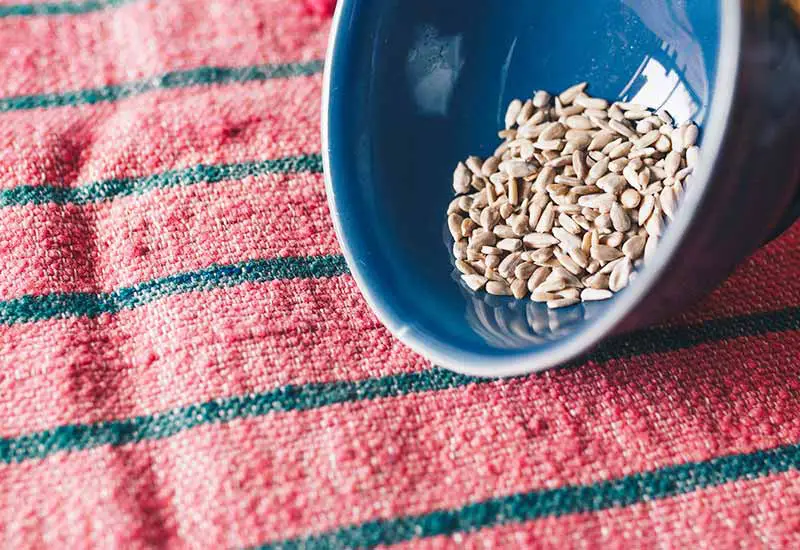
Now that you've read so much about potential deficiency symptoms, you're probably wondering which foods provide particularly high amounts of the valuable vitamin. One balanced diet rich in Whole grains, legumes, and nuts and seeds will usually provide sufficient amounts of vitamin B1.
Especially B1 rich foods are:
- Wheat Germ (2.01 mg per 100 gram)
- Sunflower seeds (1.9 mg per 100 gram)
- Pine nuts (1.3 mg per 100 gram)
- Brazil nuts (1.0 mg per 100 gram)
- Peanuts (0.9 mg per 100 gram)
- Pecans (0.86 mg per 100 gram)
- Sesame (0.8 mg per 100 gram)
- Chickpeas (0.5 mg per 100 gram)
- Whole spelt flour (0.5 mg per 100 gram)
- Natural rice (0.41 mg per 100 gram)
Tip: Since the valuable thiamine in cereal products such as rice, flour or pasta is mainly found in the outer layers, you should As many whole grain products as possible use. This is because extract flours, polished rice or conventional pasta contain only a fraction of the thiamine content.
Vitamin B1 in a plant-based diet
Due to the many plant sources, vitamin B1 is considered in vegan diets according to DGE not considered a potentially critical nutrient.9 If you eat a plant-based diet and vegan life so vitamin B1 is not a major hurdle.
However, many people with a mixed diet cover a significant part of their thiamine requirements through meat.8 Therefore, when switching to a plant-based or vegetarian diet, care should always be taken to ensure sufficient Whole grain products to consume. Optimally, you supplement this with Legumes, and nuts and seeds.
Should vitamin B1 be supplemented?
The need for thiamine supplementation always depends on several factors: First, you should check your Check current nutrient supply. On the one hand, it helps to look at one's own diet and check whether sufficient good B1 sources are integrated. On the other hand, a blood test helps to create certainty. The best way to check your thiamine supply is via the Thoroughbred measure, since this is where most of the active B1 occurs.10
But who should supplement thiamine? Dietary supplementation is particularly suitable for the above-mentioned Risk groups, such as Seniors, diabetics and alcoholics an. In addition to at-risk groups, people who consume little whole grain products, legumes, nuts and seeds should consider supplementation, as this can quickly place them among the 21 percent of men and 32 percent of women who consume too little thiamine.8
Isolated thiamine preparations are one way to ensure the supply of the valuable vitamin. Alternatively, however, vitamin B complexes are often used to prevent a deficiency. Since vitamins B1, B3 and B5 work closely together, especially in the production of energy, combined supplementation makes perfect sense.
A good one, vegan vitamin B complex in Capsules you get here*.
Tip: For even more info regarding supplements for vegans, you can check out my post Nutritional supplementation for vegan diet drop by.
Thiamine FAQ: The most frequently asked questions
What does thiamine do?
Thiamine helps the body produce energy, metabolize carbohydrates, lipids and amino acids, and transmit stimuli in the nervous system.
In which foods is thiamine?
Basically, whole grain products, legumes, nuts and seeds are rich in vitamin B1. Particularly high amounts of thiamine are found in the following foods:
- Wheat Germ
- Sunflower seeds
- Peanuts
- Chickpeas
- Whole spelt flour
- Natural rice
Can vitamin B1 harm?
The body excretes excess vitamin B1 through the urine. Therefore, the vitamin has no toxic effect.
How does a B1 deficiency manifest itself?
Deficiency symptoms are fatigue, loss of appetite, concentration and memory disorders. More specific symptoms are cardiovascular and neurological disorders and in severe cases the disease "Beri-Beri".
Is thiamine a water-soluble or fat-soluble vitamin?
Thiamine, also called vitamin B1, belongs to the B vitamin complex and is therefore a water-soluble vitamin.
With whole grain products to the desirable thiamine supply!
Most people ensure a good supply of vitamin B1 through a balanced diet safe because they produce sufficient thiamine from Whole grains, legumes, and nuts and seeds eat. In addition, due to its water solubility, you should always continue to use the cooking water during preparation. Furthermore, the shorter the cooking time, the more thiamine remains in the food.
Since I am a big fan of a holistic approach to health am, I recommend you, in addition to a balanced, plant-based diet, other health measures such as cold shower, movement at the fresh air or Meditation try them out. Try out the measures over a longer period of time and feel for yourself how your Energy in everyday life rises.
I am happy to receive questions, suggestions and criticism about the article on vitamin B1. Please feel free to write me a comment.
All the best,

P.S.: If you want to know even more about nutrients now, you are in our Nutrient database in good hands. If you want to read more about B vitamins, the articles on Vitamin B2 or Vitamin B12 a good start. Have fun!
References:
1 Deutsche Gesellschaft für Ernährung e. V.: Selected questions and answers on thiamine. https://www.dge.de/wissenschaft/weitere-publikationen/faqs/thiamin/#metab. [23.08.2021]
2 Deutsche Gesellschaft für Ernährung e. V.: Thiamin, https://www.dge.de/wissenschaft/referenzwerte/thiamin/?L=0 [23.08.2021].
3 National Institutes of Health. Office of Dietary Supplements: Thiamine. Fact Sheet for Health Professionals, https://ods.od.nih.gov/factsheets/thiamin-healthprofessional/. [23.08.2021]
4 European Food Safety Authority: Scientific Opinion on Dietary reference values for thiamine, https://efsa.onlinelibrary.wiley.com/doi/epdf/10.2903/j.efsa.2016.4653 [23.08.2021].
5 European Food Safety Authority: Tolerable Upper Intake Levels for Vitamins and Minerals, https://www.efsa.europa.eu/sites/default/files/efsa_rep/blobserver_assets/ndatolerableuil.pdf. [23.08.2021]
6 Zentrum der Gesundheit: Vitamin B1 is the nerve vitamin, https://www.zentrum-der-gesundheit.de/ernaehrung/vitamine/weitere-vitamine/vitamin-b1. [23.08.2021]
7 A. Bechthold, V. Albrecht, E. Leschik-Bonnet, H. Heseker (2012): DGE Opinion: Assessment of vitamin supply in Germany. In: Ernährungsumschau 59 (2012), pp. 324-336. Online: https://t1p.de/5c5r. [23.08.21]
8 Max Rubner Institute. J. Möhring, H. F. Erbersdobler (2008). National consumption study II - results report part 2. In: Lebensmittel-Warenkunde Für Einsteiger, (Springer), pp. 121-146. Online: https://www.mri.bund.de/de/institute/ernaehrungsverhalten/forschungsprojekte/nvsii/erg-verzehr-naehrstoffe. [23.08.2021]
9 Deutsche Gesellschaft für Ernährung e. V.: Supplement to the position of the German Nutrition Society with regard to population groups with special nutritional needs, https://www.dge.de/wissenschaft/weitere-publikationen/dge-position/vegane-ernaehrung/?L=0 [Aug. 23, 2021].
10 Center of health: determine vitamin deficiency: the diagnosis, https://t1p.de/8drh. [23.08.2021]

